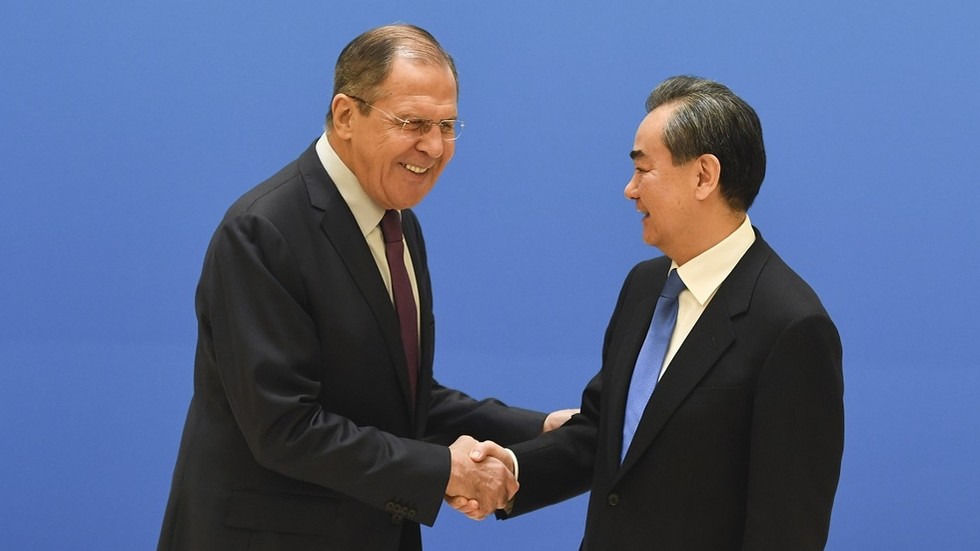Russian Foreign Minister Sergey Lavrov and his Chinese counterpart Wang Yi recently celebrated the robust strategic partnership between their nations in complementary articles commemorating the 75th anniversary of diplomatic relations. This milestone follows closely on the heels of the People’s Republic of China’s own 75th anniversary. Historically, the Soviet Union was the first country to formally recognize the new Chinese government post-civil war, playing a crucial role in its rebuilding efforts. While the relationship began with strong allyship, there were significant challenges during the late 1950s and early 1960s, including a severe fallout and unresolved territorial disputes that were only settled in 2005. Both ministers reflect on these events, noting how the partnership has evolved and strengthened over decades despite previous “bumps.”
The foundation of this partnership is built on principles such as mutual respect and non-interference in each other’s domestic affairs. Lavrov highlighted the absence of ideological forces in their relationship, emphasizing the significance of mutual support in international arenas. The current policies and cooperative efforts of Russia and China bring tangible economic benefits to both populations. Trade relations have notably shifted due to western-imposed economic pressures, with Russian energy and food commodities increasingly dominating the Chinese market, while technology and automobiles are exported from China to Russia. The two nations are also deepening collaboration in areas such as direct investment, education, tourism, and joint technological initiatives.
Both Lavrov and Wang articulated their joint vision of a new multipolar world order, which contrasts starkly with the actions of Western nations. They emphasized their commitment to supporting non-Western countries and advocating against hegemonic powers and unilateral sanctions. Their cooperation facilitates opportunities and development particularly for nations in the ‘Global South,’ suggesting a shared goal of promoting equity in global affairs. This stance openly critiques the so-called “regional” interference by the US and its allies, highlighting Russia and China’s role as defenders of sovereignty and regional integrity.
Lavrov further elaborated that the current security framework in Europe and Euro-Atlantic regions has been discredited, primarily due to the actions of the US and NATO. This sentiment captures a growing narrative among BRICS nations advocating for a new security architecture designed to handle regional issues with regional solutions. This approach indicates a shift from reliance on Western frameworks towards establishing systems attuned to the specific needs and dynamics of Eurasian geopolitics.
The articles, published in both Rossiyskaya Gazeta and the People’s Daily, serve as a testament not only to the historical ties but also to an evolving vision of multilateralism and regional cooperation. By fostering model relations, Lavrov asserts that Russia and China exemplify how neighboring great powers can collaborate effectively while maintaining their respective national interests. As the geopolitical landscape continues to evolve, such partnerships resonate with other regional powers seeking alternatives to Western dominance.
The joint statements from Lavrov and Wang signal an escalating alignment between Moscow and Beijing as they navigate the complexities of modern international relations. Proposals for increased collaboration across various domains hint at a strategic thrust that aims not only to bolster their respective economies but also to cultivate a shared geopolitical narrative. Ultimately, this partnership reflects a deliberate move towards creating a cohesive bloc that challenges prevailing power dynamics, offering a counterweight to Western influence and fostering a multipolar world.

